Yesterday was the March for Life (or the MLF as I like to call it) an annual rally organized every year to remind us that people who hate abortion have the worst taste in music. The event, which is known for chartering buses full of underage students from schools across the country, started the year after Roe v Wade became law in 1973 and it seeks a radical ban on all abortions, something that conservative justices on the Supreme Court seem pretty jazzed to accomplish this year.
This year featured the dystopian theme of “equality begins in the womb,” with a focus on how the fight for abortion is a lot like Black Lives Matter and the fight for wait for it… women’s rights. The president of the march Jeanne Mancini called it “the largest human rights demonstration in the world.” While it isn’t clear if it was the biggest human rights protest, it was definitely the first that included neo-nazis. To make it even more confusing, she quoted MLK despite him calling family planning “a special and urgent concern.” In addition to co-opting civil rights leaders and feminist rhetoric, people with disabilities were also culturally appropriated.
The March For Life really is the coolest club in New York. It has everything: hate groups, honorees whose homes just got raided by the FBI and lawmakers who talk about “dismembering babies” with “knives.”
I wanted to rate the female speakers' haircuts but I couldn’t tell them apart.
But the MFL wasn’t all white ladies with “speak to the manager” haircuts misquoting MLK. The event also featured a Black female speaker who said “all lives matter” to a cheering crowd of mostly white people. To keep with the theme, she too quoted MLK who would probably be mortified to know that his legacy was being used to justify a radical ban that would intensify the Black maternal mortality crisis. If abortion becomes illegal, the most conservative estimate is that the number of women who will die from pregnancy-related deaths will increase by 21% but the impact on BIPOC women would be even more disastrous. An abortion ban will increase pregnancy-related deaths by 33% for Black women.
It’s very possible that Roe v Wade will be overturned this summer, but thankfully if tech can revolutionize the way we get pizza it can alter the way we receive abortions. Telehealth has already helped women in Texas access abortion pills at three times the national average. Abortion pills are not only more accessible, but also cheaper and already make up 40% of abortions in the US and 90% of abortions in places like France and Scotland. While Republicans are trying to restrict access, it’s easy to see how these limitations could be circumvented.
While I was writing this to you, I realized that today marks the ten-year anniversary of the very first time I went to the MFL to support abortion rights. I’ve included some of the shots I took with my my first digital camera at the time. When I revisit them now and feel disheartened about how much progress we’ve lost, I remind myself that only 13% of Americans want abortion to be completely illegal and that most of us believe that Roe v Wade should stay. But these photos also remind me of how far we’ve come. I still had a flip phone. Twitter was brand new. I didn’t know that women would be using social media to craft a global diverse movement generating accountability for survivors of all walks of life. There’s a lot we don’t know about what’s next. Sure, the future could be grim. But why not bet on it being bright?


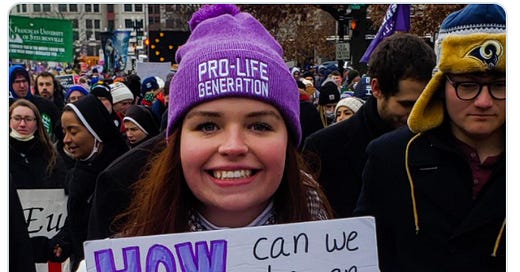



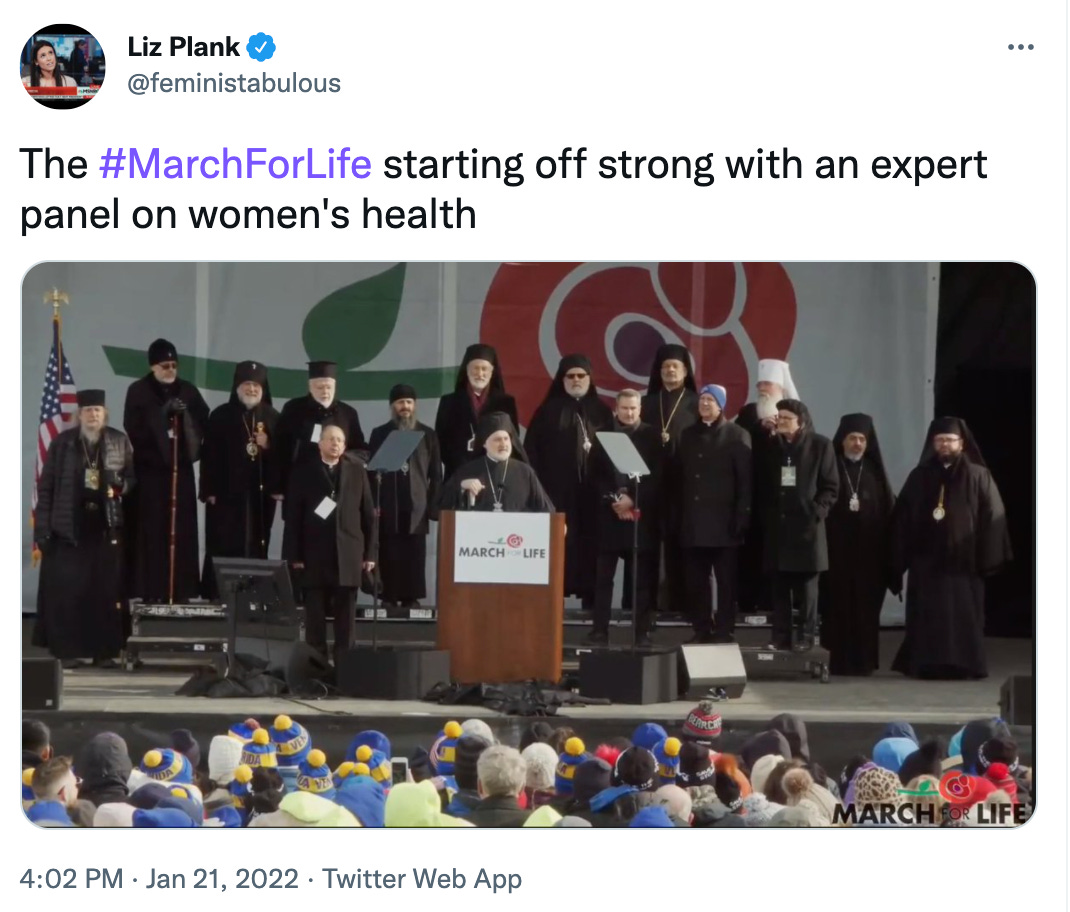

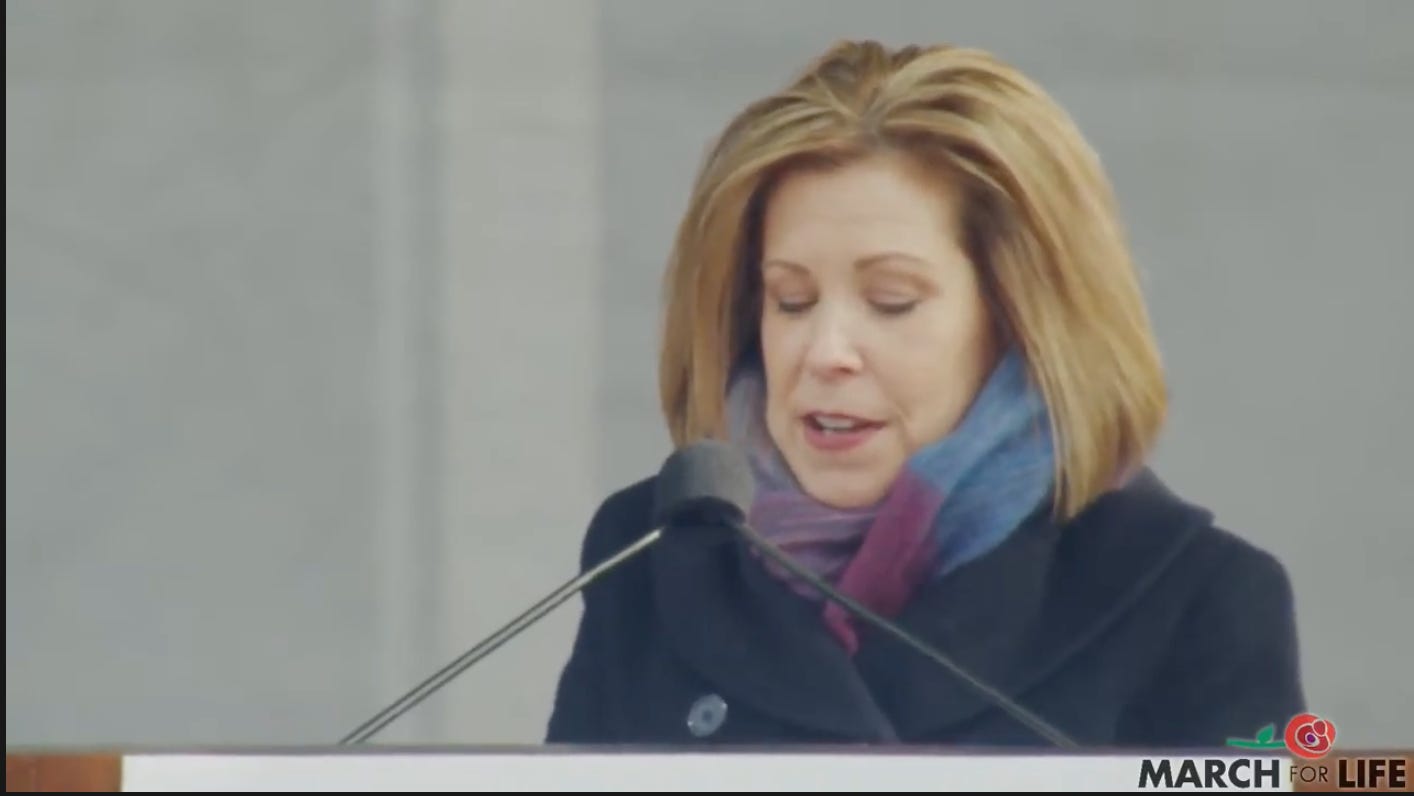


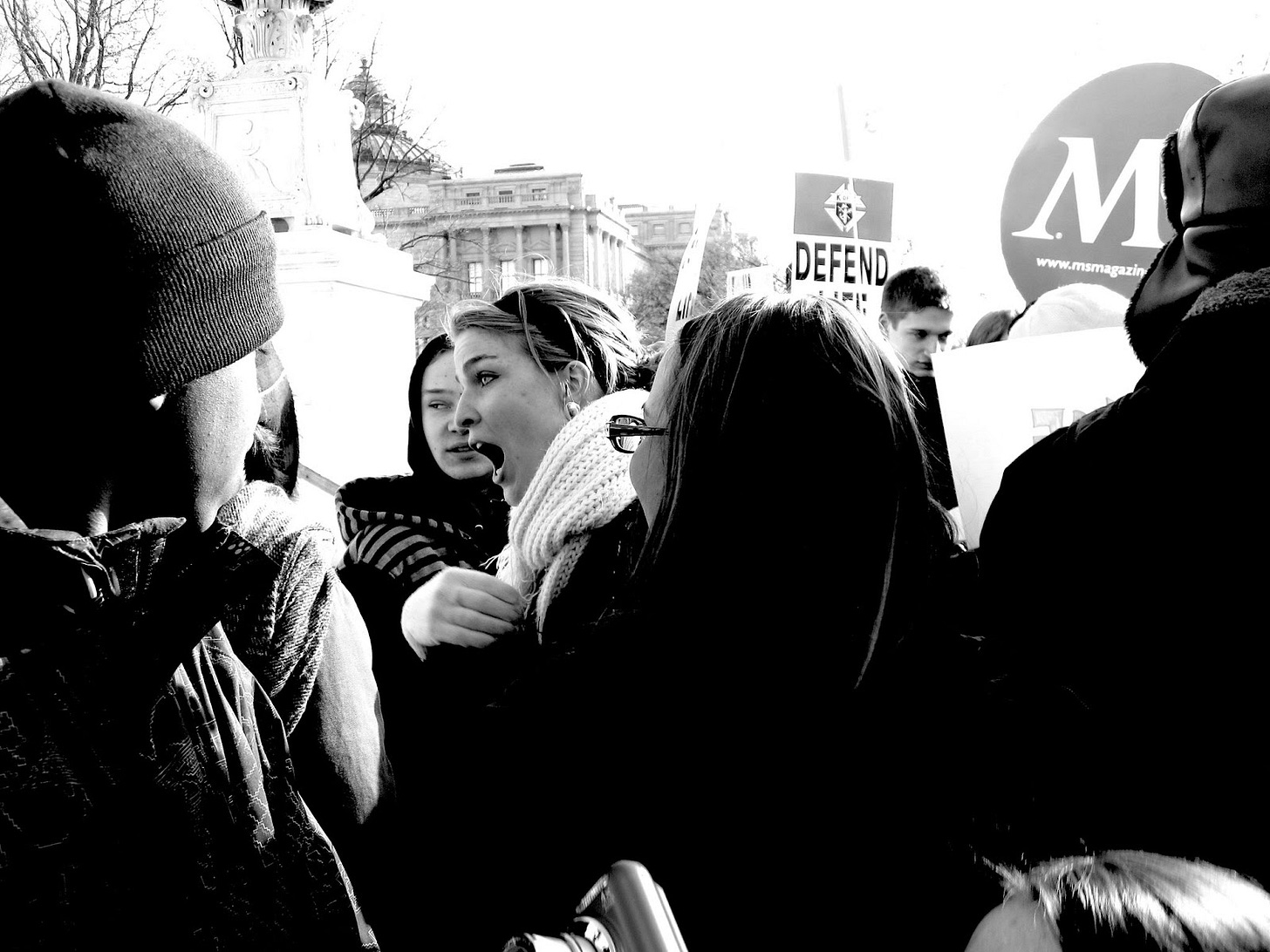

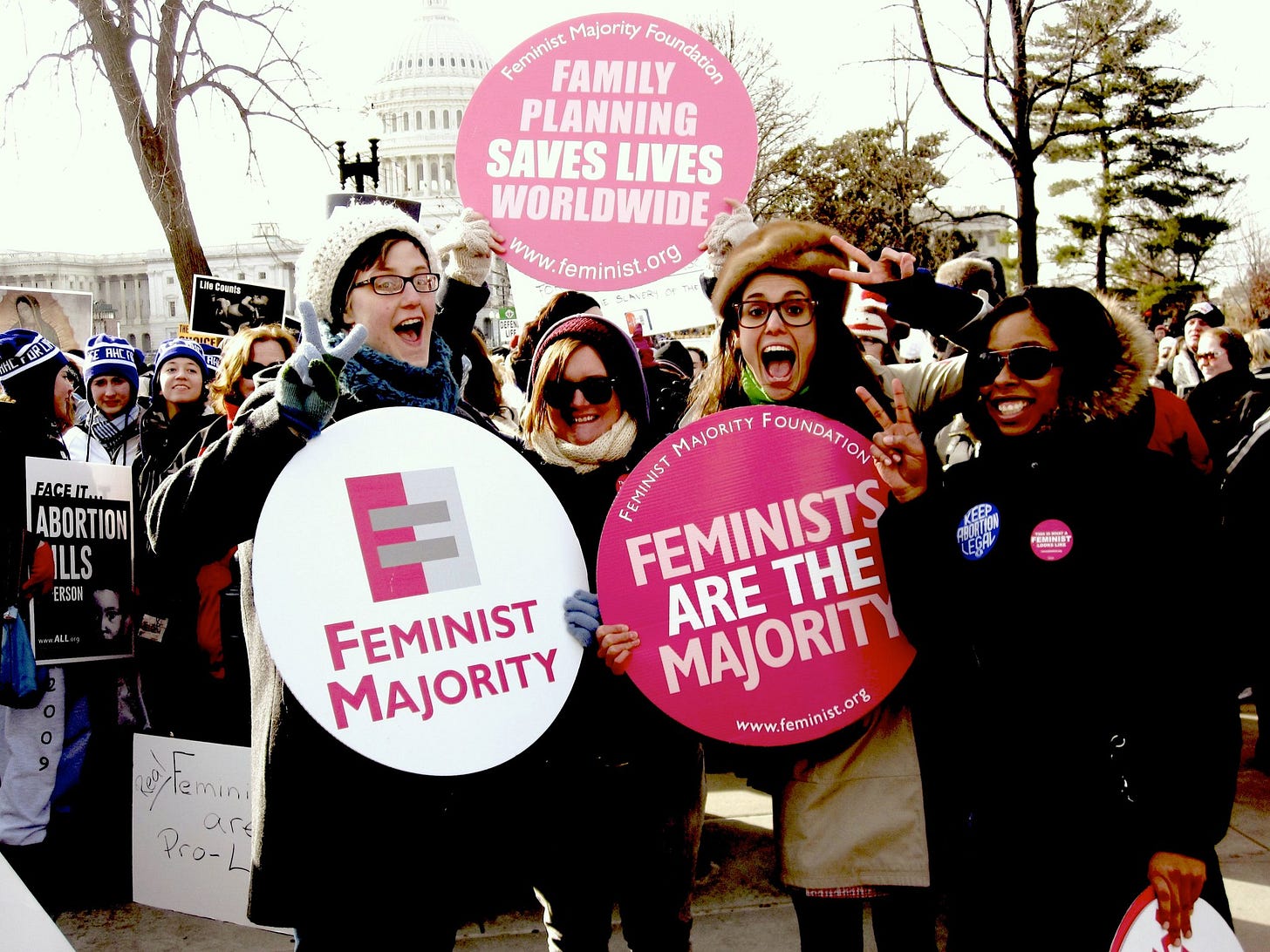
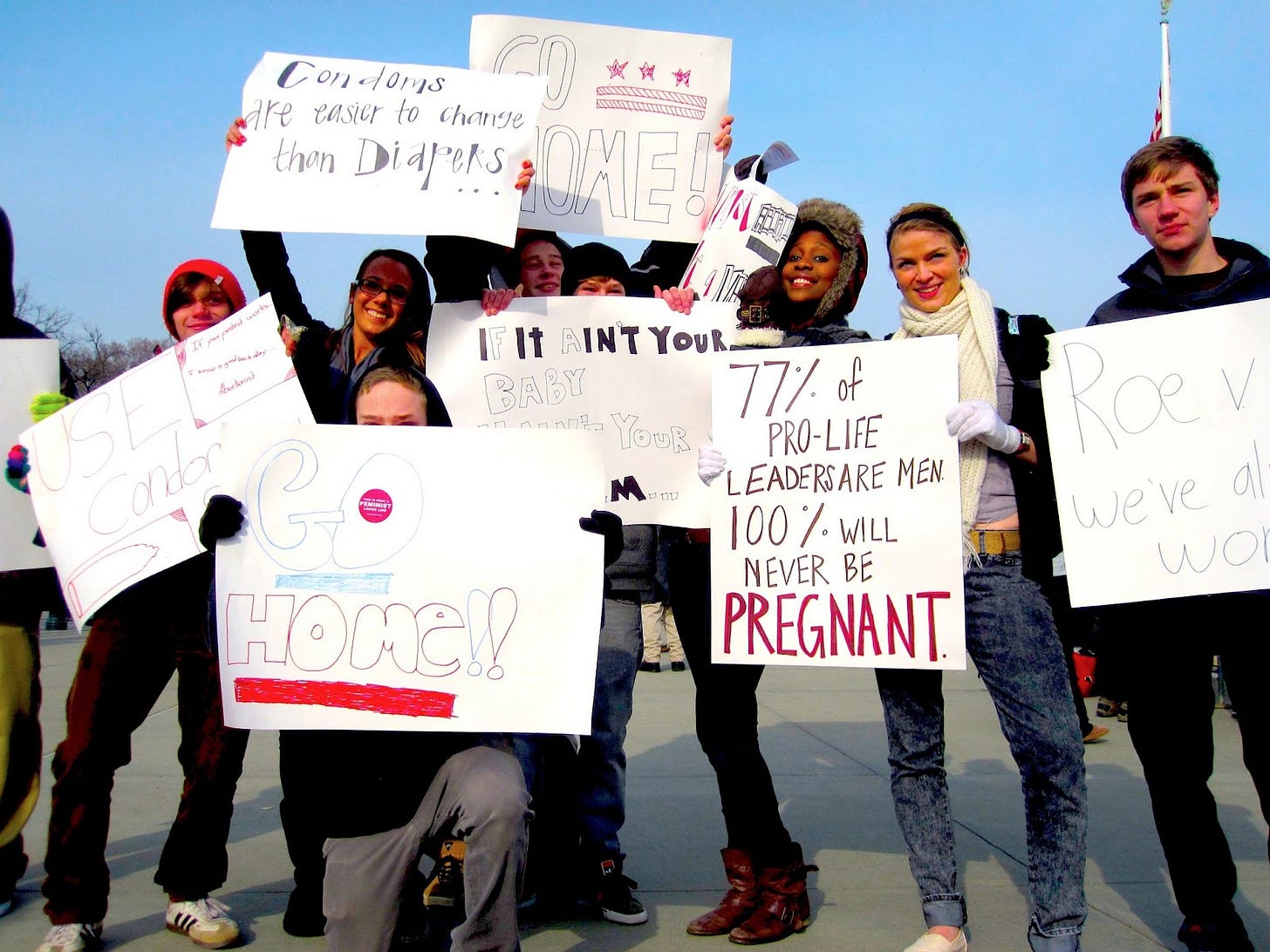
Forever grateful for you, your relentless advocacy and so much more!
I went to catholic school and we were bussed to this March in Dc when I was about 15 or so. Hasn't changed much